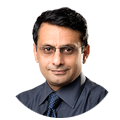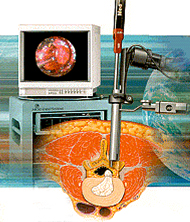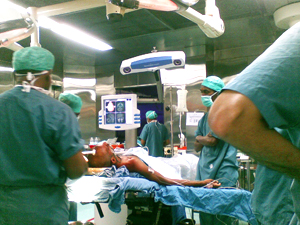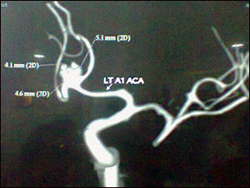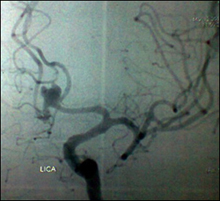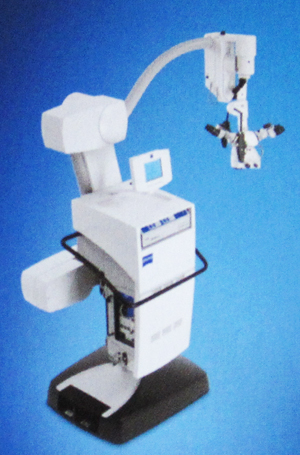For Consultation:
About Neurosurgery
What is Neurosurgery?
Neurosurgery is a branch of medicine that deals with the surgical treatment of problems affecting the
• Brain
• Spine
• Peripheral nerves and the
• Arteries of the neck
The word neurosurgery is derived from the words 'neuro' and 'surgery'. 'Neuro' refers to the nervous system. Neurosurgery is therefore the discipline of surgery of the Brain & Spine.
1) What Is The Nervous System?
The nervous system is formed by the:
• Brain
• Spinal cord and
• Peripheral nerves
The brain is the command center of the body; it controls the body, our movements and our sensations as well as our understanding and speech.
Peripheral nerves bring the information from the eyes, ears, face, arms, legs and the rest of the body to the brain.
They also take the orders from the brain to the muscles of the face, arms, legs and the rest of the body. This allows us to speak and move.
These nerves act like electric wires that take information to and from the brain.
On their way to and from the brain most of these cables pass through the spinal cord, which is protected by the spine and the vertebrae.
The brain contains and is surrounded by special fluid known as cerebro spinal fluid or CSF. This fluid acts as a shock absorber. The cavities inside the brain that contain this fluid are known as ventricles.
The brain depends on the blood to give it oxygen and sugar; four major blood vessels take the blood to the brain. Two are located in the front and are known as carotid arteries. The two in the back are known as vertebral arteries.
The spine is formed of vertebrae. These are the solid building blocks of the spine.
Disks are softer and smaller than vertebrae. They are located in between vertebrae. They allow the great mobility of the spine.
Nerves take off in between the vertebrae to go to the arms, chest, abdomen, pelvis and legs to convey the messages of the brain and to bring back different sensations to the brain.
2) Diseases of The Brain and Its Blood Vessels -
Neurosurgeons are trained to take care of head injuries.
They are able to take blood clots out of the brain caused by accidents or hypertension.
They are able to take out brain tumors and direct the treatment of such tumors.
Blockage in the drainage system of the CSF can lead to accumulation of this fluid and increase pressure on the brain. This is known as hydrocephalus and could lead to death. Neurosurgeons are able to divert the fluid from the brain to the abdomen or blood system.These operations are known as ventriculo-peritoneal and ventriculo-atrial shunting.
Aneurysms and arteriovenous malformations (AVMs) are abnormalities of the blood vessels of the brain. They can rupture and cause bleeding in and around the brain. They can also compress the brain causing paralysis and seizures.
Recent studies have shown that partially blocked carotid arteries can increase the risks of strokes. Neurosurgeons are trained to open such blockage. The operation is known as 'carotid endarterectomy.'
Seizures that cannot be controlled with medication alone may be amenable to treatment with surgery. Operations to take the abnormal part of the brain have been devised to control seizures. Other operations to place a stimulator of the vagal nerve in the neck have recently been approved for the control of seizures.
3) Diseases Of The Spine And Spinal Cord -
Neurosurgeons are also highly trained in the treatment of spinal cord and spinal problems.
They are able to take tumors from the spinal cord or the spine and direct further treatment if needed.
They are also able to take care of disk problems that may result in severe neck, arm, back or leg pain.
They can also take care of spinal cord injury and fuse broken backs and necks.
4) Diseases of The Peripheral Nerves -
Neurosurgeons are also able to take care of peripheral nerve problems.
One peripheral nerve problem is carpal tunnel syndrome, where a nerve is pinched at the wrist, resulting in numbness and weakness of the hand.
Cubital tunnel syndrome is another common condition treated by neurosurgeons. In this syndrome another nerve gets pinched at the elbow also causing numbness and weakness of the hand.
They can also treat tumors of the peripheral nerves.
They can repair nerves cut during accidents.
5) What is The Role of The Neurosurgeon?
Neurosurgeons train an average of 6 to 7 years after finishing medical school.
Because neurosurgeons have extensive training in the diagnosis of all neurological diseases, they are often called upon by emergency room doctors, neurologists, internists, family practitioners, and osteopaths for consultations.
Frequently patients are sent to neurosurgeons for consultation and to help the referring physician decide if an operation is needed or not.
To help with these decisions, it is important for the patient to bring the results of any previous medical tests to the consultation. This includes scans, blood work, ultrasounds, nerve studies, EEGs, and the like.
Thanks to advances in technology and techniques, treatment of neurological diseases has become more successful and safe.
The discipline of Neurosurgery requires a coordinated team effort to achieve the best outcome in all neurosurgical patients. Hence the need for a comprehensive multidisciplinary care under one roof. Critical Care & Anesthesia and Neuroradiology have made significant contributions to the evolution of Neurosurgery, along with Neuro- rehabilitation techniques.
Contact Details
Mobile: +91 98308 34566
Email:
pbishnu04@yahoo.co.in
pbishnu08@gmail.com
Website:
www.neurosurgeryindia.co.in
